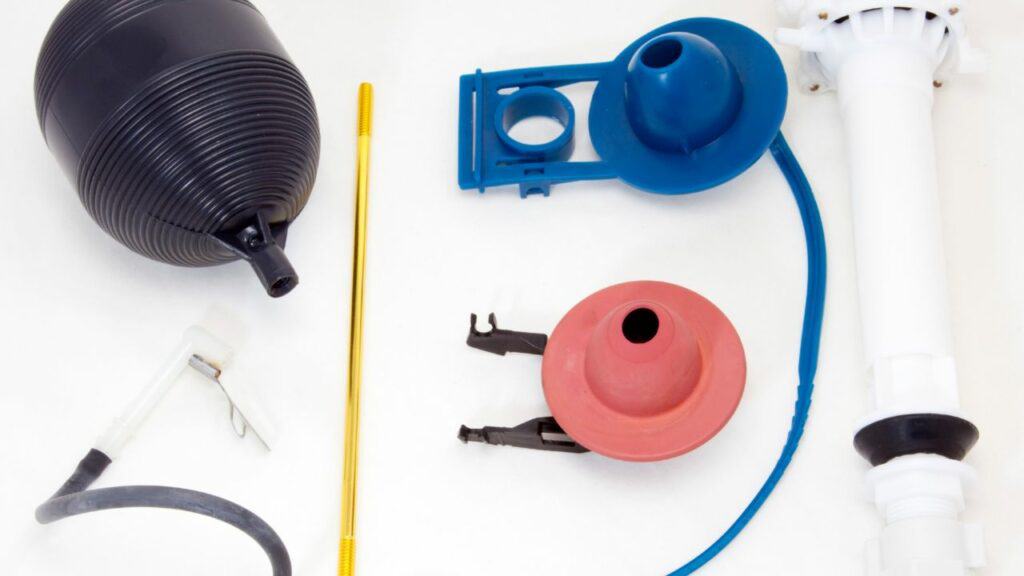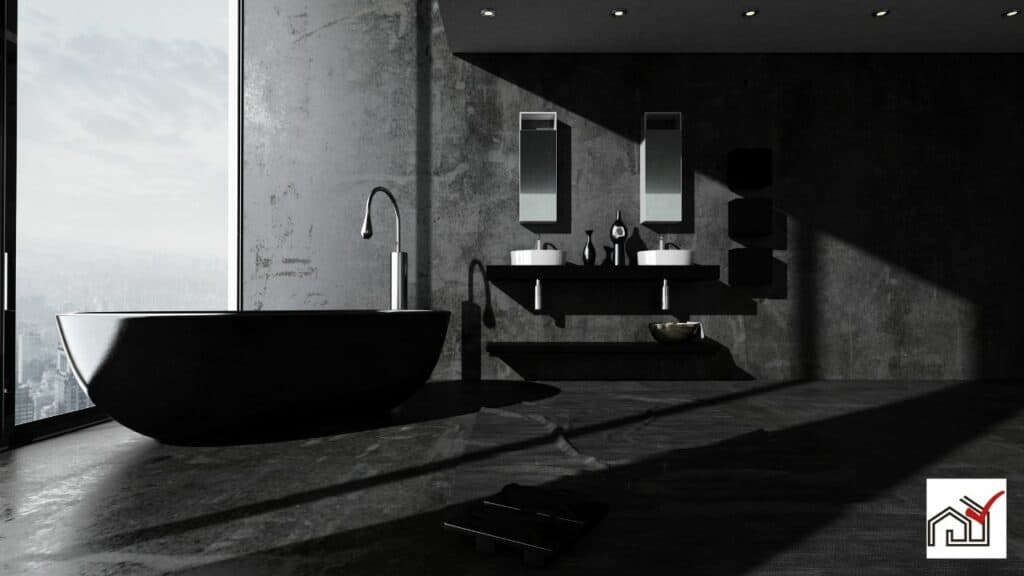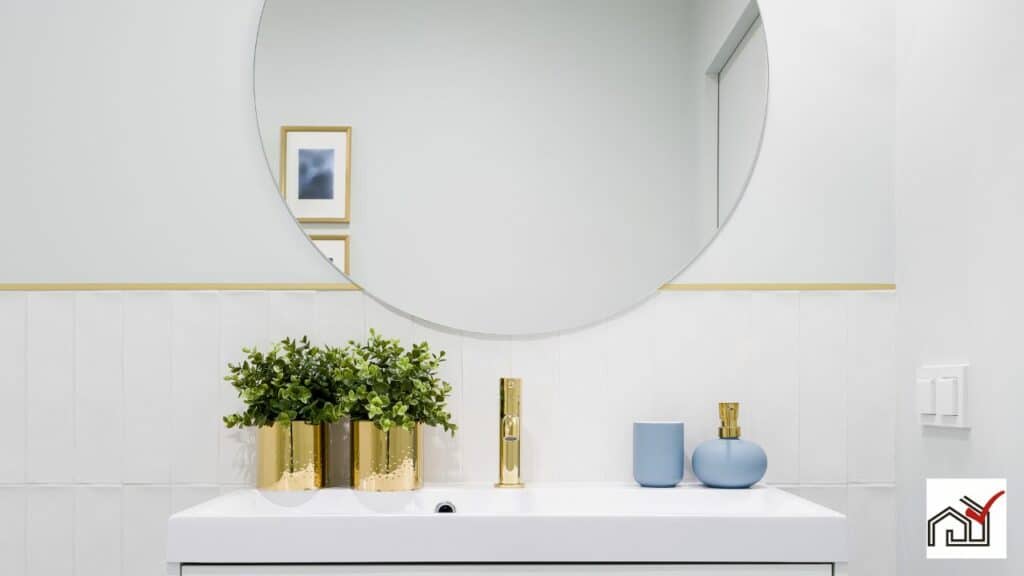Sealing bathroom countertops, particularly those made of natural stone, is important to protect them from spills and stains, and to maintain their appearance.
Bathrooms are often exposed to various substances, so sealing is recommended for upkeep. Materials like marble and limestone are porous and require regular sealing.
Hiring professionals for sealing ensures a thorough job, and resealing periodically helps maintain the countertop's condition.
Sealing is a wise choice for the longevity and functionality of bathroom countertops.
Understanding Countertop Materials
Countertop materials differ in porosity and durability, which affects how they should be sealed and maintained. When choosing a bathroom countertop, it's important to know the material's properties to maintain its look and longevity.
Natural stones like marble, limestone, and travertine are sought for their unique looks and luxury, but their porous nature makes them prone to stains. The stone's porosity determines how often and what method of sealing is needed. Marble and limestone require regular sealing to keep their appearance and function. Improper application of sealants can lead to a streaky finish or loss of shine.
Granite, being less porous, might need only one sealing to protect against spills. Not all countertop materials need sealing. Some stones do not absorb sealants well, resulting in an uneven look if overapplied. To avoid scratches and burns from over-sealing, it's important to assess the stone's porosity. This can be done by testing a hidden area or seeking professional advice for proper sealing intervals and techniques.
Regular cleaning with gentle products is vital to protect the surface and extend the sealant's life.
Benefits of Sealing Countertops
Sealing bathroom countertops improves their resistance to daily use, maintaining their appearance over time. Sealant acts as a barrier, making materials like marble and limestone less porous and less prone to moisture damage.
One main benefit of sealing is stain protection. Bathrooms encounter spills from makeup, lotions, and hair dyes. A sealed countertop prevents these from penetrating the stone, making cleanup easier and avoiding stains.
Sealed countertops also resist acidic spills that can etch the surface, causing dull spots. This is especially important for natural stone countertops like marble and limestone, which are more vulnerable to etching.
Sealing enhances the durability and appearance of granite vanity tops as well. It prevents absorption, keeps the stone looking new, and minimizes the need for repairs or replacements.
Resealing frequency varies by the stone's porosity, but sealing remains an important practice for extending the life and beauty of bathroom countertops.
Risks of Not Sealing
Not sealing bathroom countertops can lead to damage such as stains and deterioration. Porous materials like marble and limestone are especially vulnerable in humid bathrooms. Without sealant, water and other substances can penetrate the surfaces, causing lasting damage.
Unsealed countertops can quickly absorb liquids, which may include water and cleaning agents, resulting in a cloudy or streaked finish that is hard to fix. Acidic substances can also etch the surfaces, leading to a worn look.
Countertops without a seal are more likely to get scratched by daily use items, which can harbor bacteria and affect hygiene. Spills can cause stains that are difficult to remove and may necessitate professional repair or replacement.
Sealing bathroom countertops is an important step to prevent damage and maintain the surfaces' appearance and durability.
Identifying Sealant Needs
To assess if a bathroom countertop needs sealing, homeowners can perform a water drop test. This involves placing water on the stone and watching the absorption rate. If the water forms beads and doesn't absorb after a few minutes, the sealant is adequate. If the stone darkens and absorbs water quickly, it needs resealing.
Softer stones like travertine, limestone, and marble are more likely to stain and need regular sealing. Dense stones such as granite might not need frequent sealing, especially if they are dark and less porous.
Different stones require different sealing schedules. Non-porous stones may need sealing only once, while porous stones require it more often, depending on use and porosity. Regular water drop tests help maintain the stone's protection and appearance.
Sealant Types and Choices
There are various types of countertop sealants, each offering different levels of protection against stains, etching, and wear for different stone surfaces in bathrooms. Choosing the right sealant for the particular type of stone is crucial. Natural stones like travertine, limestone, and marble need deep-penetrating sealants for effective protection.
Applying sealant is generally simple but requires proper surface preparation, including deep cleaning, stain treatment, and ensuring the countertop is dry. Following the manufacturer's instructions is important for the sealant to adhere and work correctly.
Solvent-based sealants are commonly used because they can penetrate the stone's pores deeply and are durable against moisture and stains. The sealant's longevity varies based on use frequency, water exposure, and stone type. Granite vanity tops, which are susceptible to stains and etching, benefit from a high-quality solvent-based sealant to maintain their appearance.
After applying any sealant, a water test is recommended to check if the surface is sealed well. If a tablespoon of water left on the surface for 20 minutes gets absorbed or leaves a mark, more sealant may be needed. A properly sealed countertop maintains the stone's look and simplifies maintenance and cleaning.
Step-by-Step Sealing Process
To seal bathroom countertops, follow these steps:
- Choose a sealer with fluorocarbon aliphatic resin for its protective qualities.
- Test the stone's seal by dropping water on the surface. If it beads, the seal is good; if it absorbs, proceed to seal.
- Clean the countertop with warm water and mild dish soap; dry for 24 hours.
- Apply the sealer evenly with a spray bottle or brush; let it penetrate for 20 minutes, then wipe off excess.
- Let the sealer cure for 48 hours without using the countertop.
- After curing, the countertop is protected and ready for use.
Maintenance of Sealed Surfaces
Proper maintenance of sealed bathroom countertops is essential for their durability and appearance. Taking care of these surfaces helps preserve their resistance to stains and acidic substances. It's important to clean them regularly and to check the condition of the sealant to ensure continued protection.
For granite, which is a non-porous stone, sealing is typically done once. Despite this, it's still critical to monitor for any signs of wear. If water stops beading on the surface or the countertop appears dull, resealing may be necessary.
Marble and limestone are porous and may need resealing every 5 to 7 years, depending on how much they are used and the type of sealant applied. Always adhere to the sealant manufacturer's guidelines. Excessive sealant can lead to a sticky surface that attracts dirt and can be damaged more easily.
To maintain sealed surfaces correctly, avoid over-sealing and reseal when needed. Regular water-drop tests and visual inspections can help you determine when to apply a new coat of sealant to keep your countertops in good condition.
Professional Sealing Services
Professional sealing services protect bathroom countertops, especially those made of stone. These services are important for preventing water damage, stains, and etching, especially in softer stones like travertine, limestone, and marble. For durable stones like granite, professionals ensure an even sealant application for long-lasting protection and appearance.
Experts in sealing services can determine the type of stone and its porosity to advise on how often sealing is needed, avoiding potential damage from incorrect sealing frequency. The sealing process is intricate and professional execution is typically recommended.
Using professional sealing services reduces the risk of future staining and etching, which can happen with improper sealing. Choosing professional sealing for bathroom countertops is a prudent decision for their maintenance and longevity.





